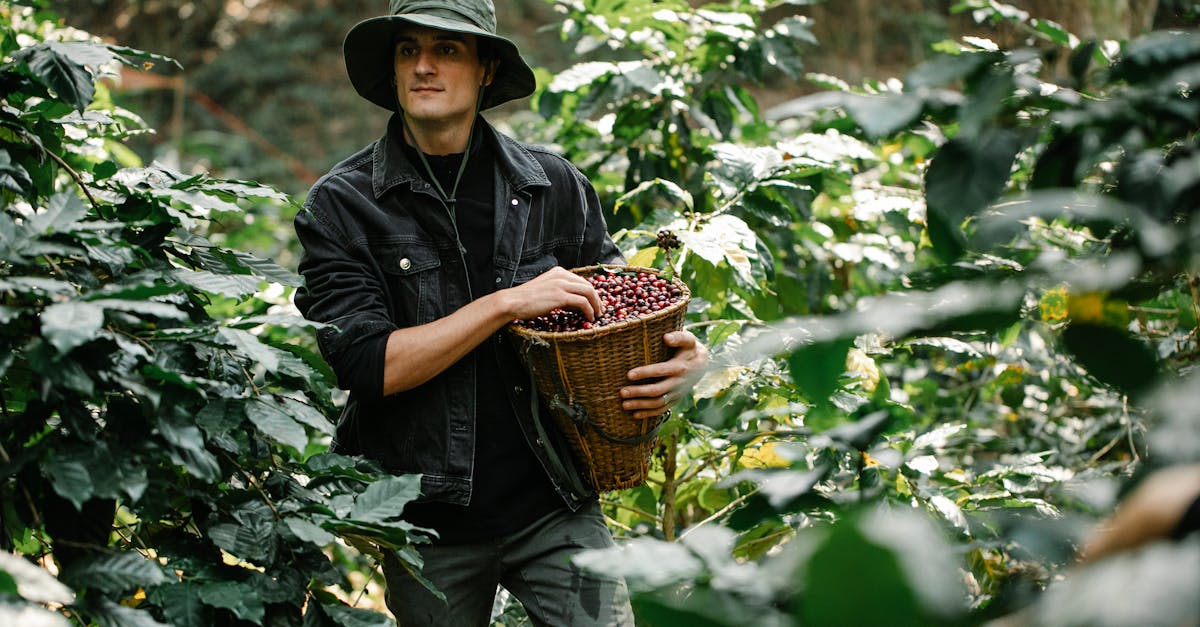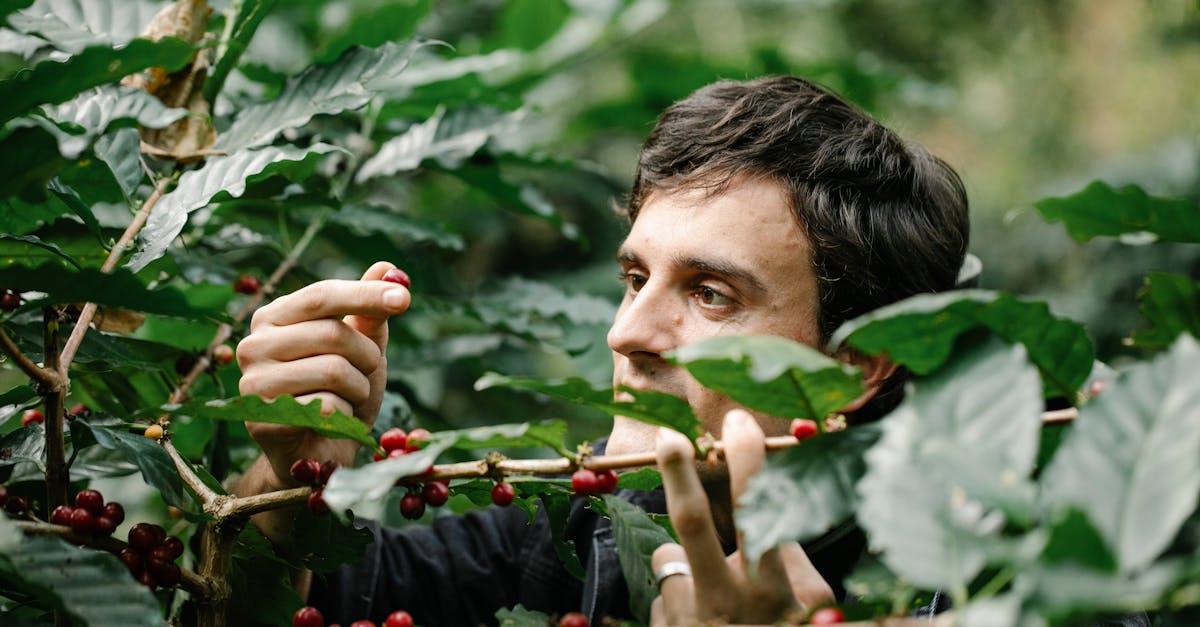Discover the untold stories behind Africa’s coffee plantations in this captivating article. Unveil the social, environmental, and economic impact of these hidden gems and embark on a journey to explore the true essence of sustainable agriculture in Africa. Are coffee plantations in Africa worth exploring? Let’s delve into the heart of these vibrant communities and find out.
the history of coffee in Africa

The history of coffee in Africa is a fascinating tale that spans centuries and continents. From its origins in Ethiopia to its spread across the African continent, coffee has played a crucial role in shaping the economies and cultures of many African countries. Let’s delve into the rich history of coffee plantations in Africa and explore the stories behind some of the most prominent coffee-producing nations on the continent.
The 5 Countries That Produce the Most Coffee
1. Ethiopia: Known as the birthplace of coffee, Ethiopia boasts a long history of coffee cultivation.
2. Uganda: Uganda is one of the largest coffee producers in Africa, with a diverse range of coffee varieties.
3. Kenya: Renowned for its high-quality Arabica coffee, Kenya’s coffee industry is a key player in the global market.
4. Tanzania: From the slopes of Mount Kilimanjaro to the plains of Arusha, Tanzania’s coffee plantations produce some of the finest coffee beans in the world.
5. Rwanda: Emerging as a major player in the coffee industry, Rwanda’s specialty coffee has gained international acclaim for its unique flavors and quality.
Exploring the Evolution of Jamaica’s Coffee Industry
Jamaica’s Blue Mountain coffee is one of the most sought-after and expensive coffees in the world. With its distinctive flavor profile and limited production, Jamaican coffee has become a symbol of luxury and exclusivity. The evolution of Jamaica’s coffee industry reflects a blend of tradition and innovation, making it a unique player in the global coffee market.
A Guide to Coffee Production in Madagascar
Madagascar, the fourth largest island in the world, is home to a burgeoning coffee industry. Known for its rich biodiversity and unique growing conditions, Madagascar produces a variety of coffee beans with distinct flavors. From the fertile highlands to the coastal regions, coffee production in Madagascar offers a taste of the island’s rich cultural and environmental heritage.
Addressing Colonial Inequalities In The Coffee Sector
The legacy of colonialism continues to impact the coffee sector in many African countries, with inequalities and challenges persisting in the industry. Addressing these issues is crucial for creating a more equitable and sustainable coffee sector that benefits all stakeholders, from smallholder farmers to exporters and consumers. By promoting transparency and fair trade practices, African countries can work towards a more inclusive and prosperous coffee industry.
The Rise of Coffee and Tea Tourism in Rwanda
Rwanda has made great strides in promoting coffee and tea tourism as a way to showcase its rich cultural heritage and boost economic development. Visitors can now experience firsthand the journey from bean to cup, visiting coffee plantations and learning about the intricate process of coffee cultivation. This growing trend in agrotourism not only supports local farmers and communities but also offers travelers a unique and immersive experience.
Success in Coffee Erasing Rwanda’s Sad History
Rwanda’s coffee industry has become a symbol of hope and resilience, transforming the country’s tragic past into a story of success and prosperity. Through initiatives that support smallholder farmers and promote sustainable practices, Rwanda has positioned itself as a key player in the specialty coffee market. The success of Rwanda’s coffee sector serves as a testament to the power of agriculture in driving positive change and rebuilding communities.
Ofi Explains How It’s Unleashing Zambia’s Potential as a Coffee Producing Country
Ofi, a leading coffee company in Zambia, is at the forefront of unleashing the country’s potential as a coffee-producing nation. By investing in infrastructure, technology, and farmer training, Ofi is empowering local communities and elevating Zambia’s presence in the global coffee market. Through collaborations with international partners and a commitment to quality, Ofi is paving the way for Zambia to become a competitive player in the coffee industry.
Art as Original as the Coffee: The Story Behind Starbucks Reserve Packaging
Starbucks Reserve packaging features unique artwork inspired by the origins of the coffee beans, highlighting the artistry and craftsmanship behind each cup of coffee. By showcasing different artists and cultures on its packaging, Starbucks celebrates the diversity and creativity of the coffee world. This attention to detail and storytelling adds an extra layer of depth to the coffee-drinking experience, connecting consumers to the journey of the beans from farm to cup.
This Nigerian Entrepreneur Started with One Coffee Tree, Now He Manages Over 20,000 Coffee Trees
In Nigeria, a young entrepreneur’s journey from a single coffee tree to a thriving coffee plantation is a testament to dedication and hard work. By embracing sustainable practices and investing in infrastructure, he has expanded his coffee business to manage over 20,000 coffee trees. His story exemplifies the potential for growth and success in the coffee industry, inspiring others to pursue their dreams and make a positive impact in their communities.
Out of Africa and into Ontario: The Story Behind Canada’s First Grower-Direct Imported Coffee
The story of Canada’s first grower-direct imported coffee traces its roots back to Africa, where smallholder farmers grow high-quality beans with care and expertise. By establishing direct trade relationships with these farmers, a Canadian company is bringing the flavors of Africa to Ontario coffee lovers. This direct-to-consumer approach not only ensures fair compensation for growers but also offers consumers a truly unique and ethical coffee experience that connects them to the source of their daily brew.
the current state of coffee plantations in Africa

the 5 countries that produce the most coffee
Africa stands as a significant player in the global coffee market, with several countries on the continent being top producers of this sought-after commodity. According to recent data, Ethiopia, Uganda, Côte d’Ivoire, Tanzania, and Kenya emerge as the top five countries in Africa that produce the most coffee. These nations boast rich coffee-growing regions that contribute substantially to the world’s coffee production.
coffee and climate have a complicated relationship
Climate change poses a significant challenge to coffee plantations in Africa, affecting both the quality and quantity of coffee harvests. Daba Etana and Dawit Merga have highlighted the current climate change impacts on Arabica coffee production, emphasizing the need for mitigation efforts. As temperatures rise and weather patterns become increasingly unpredictable, coffee farmers in Africa are facing the harsh reality of a changing climate that threatens their livelihoods.
vietnamese farmers shift to climate-change-resistant robusta coffee bean
In response to climate change challenges, Vietnamese farmers are making a strategic shift towards cultivating robusta coffee beans that are more resistant to climate variations. As Arabica coffee faces growing vulnerabilities to changing weather conditions, the robusta variety offers a more stable option for coffee production in the face of climate uncertainties.
cameroon plans to triple production
Amidst the current state of coffee plantations in Africa, Cameroon is taking proactive steps to boost its coffee production. With plans to triple its coffee output, Cameroon is positioning itself as a key player in the African coffee market. By implementing innovative farming practices and investing in the coffee sector, Cameroon aims to enhance its competitiveness in the global coffee industry.
producer groups seek urgent action on prices
As falling coffee prices continue to impact coffee farmers across Africa, producer groups are advocating for urgent action to address this pressing issue. In a letter addressed to coffee roasters, these groups underscore the need for fair and sustainable pricing that ensures the livelihoods of coffee farmers are protected. The call for action reflects the challenges faced by coffee plantations in Africa in the current economic climate.
In conclusion, the current state of coffee plantations in Africa is influenced by a complex interplay of factors, including climate change, market prices, and production challenges. As African countries navigate these dynamics, strategic initiatives and collaborative efforts are essential to ensure the sustainability and resilience of coffee plantations across the continent.
the challenges facing coffee production in Africa

coffee production in Africa faces various challenges that impact the industry and the livelihoods of many communities dependent on this crop. From climate change to market fluctuations, there are several key obstacles that coffee plantations in Africa must navigate to ensure sustainable production.
women in east african coffee production
In many East African countries, women play a crucial role in coffee production. However, they often face barriers such as limited access to resources, land, and financial support. Empowering women in coffee farming is essential for the overall growth and sustainability of the industry.
how agroforestry can help coffee farms become more resilient to climate change
Agroforestry practices can improve the resilience of coffee farms to the impacts of climate change. By integrating trees into coffee plantations, farmers can enhance soil health, retain moisture, and provide shade for coffee plants, ultimately increasing their resistance to droughts and extreme weather events.
can coffee production become more important for togo?
Togo, like many other African countries, has the potential to elevate its coffee production and become a key player in the global coffee market. By investing in infrastructure, technology, and training for coffee farmers, Togo can increase its coffee yields and improve the quality of its beans, attracting more international buyers.
beyond sustainability: why the future of coffee farming is regenerative
While sustainability is crucial for coffee production, a shift towards regenerative farming practices is gaining momentum. Regenerative agriculture focuses on restoring ecosystems, building soil health, and promoting biodiversity, resulting in a more resilient and environmentally friendly coffee industry.
uganda: reforms needed as coffee industry faces challenges
Uganda’s coffee industry is facing challenges such as low productivity, limited access to markets, and fluctuating prices. To overcome these hurdles, reforms in policies, infrastructure, and support systems are needed to enhance the competitiveness of Ugandan coffee in the global market.
kenya to double coffee production
Kenya has set ambitious goals to double its coffee production in the coming years. By implementing strategies to increase yields, improve quality control, and enhance marketing efforts, Kenya aims to secure its position as a leading coffee exporter in Africa.
it’s not all doom and gloom as coffee farmers share victories
Despite the challenges faced by coffee farmers in Africa, there are success stories and victories to celebrate. From innovative farming techniques to community-driven initiatives, coffee farmers are resilient and resourceful in overcoming obstacles and driving positive change in the industry.
four heads of state confirmed for the g-25 coffee summit
The upcoming G-25 Coffee Summit will bring together leaders from coffee-producing nations to discuss key issues affecting the industry. With four heads of state in attendance, the summit presents an opportunity to foster collaboration, share best practices, and advocate for policies that support the sustainable growth of coffee production in Africa.
increasing coffee earnings through value addition | monitor
Value addition plays a crucial role in increasing the earnings of coffee farmers. By processing coffee beans locally, diversifying products, and exploring niche markets, farmers can capture more value from their harvest and improve their financial stability.
